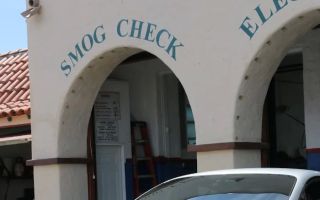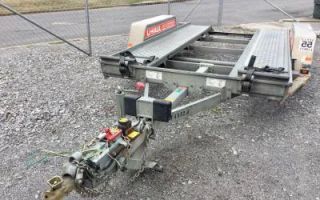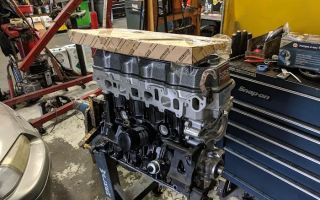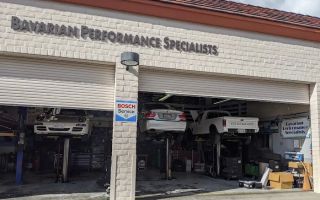Roadside Flat Tire Repair for Buses: A Comprehensive Guide
1. The Challenge of Flat Tire Repairs for Buses
As someone who’s been working in the transportation industry for years, I’ve encountered my fair share of flat tires on buses. Whether it’s a city bus in the middle of rush hour or a long-distance coach on a cross-country trip, a flat tire can bring operations to a halt. Dealing with flat tires on buses is a unique challenge, primarily due to the size and weight of the tires, as well as the complexity of working on large vehicles. However, I’ve learned through experience that with the right tools, knowledge, and preparation, a flat tire repair on a bus can be done safely and efficiently. Let me share my experience and tips for handling these roadside repairs, which might help you if you find yourself in a similar situation.
2. How Flat Tires Occur on Buses
Buses are large, heavy vehicles that undergo significant wear and tear on their tires, especially given the distances they travel. Over the years, I’ve learned that there are a few common causes behind flat tires on buses:
- Punctures: A puncture is one of the most common reasons for a flat tire. Debris on the road, such as nails, glass, or sharp objects, can easily cause a puncture. The tires of buses are also more prone to punctures because of their large surface area, making them more susceptible to debris.
- Underinflation: Improper tire inflation is a major cause of tire damage. When tires are underinflated, they heat up more than usual, which can lead to blowouts. I’ve found that keeping an eye on tire pressure regularly can help prevent this issue.
- Overloading: Overloading the bus beyond its weight capacity can cause excessive pressure on the tires, leading to tire failure. It's crucial to make sure the bus is loaded within the recommended weight limit to avoid this.
- Aging Tires: Like all vehicles, buses have a lifespan. Over time, the rubber in tires can degrade due to exposure to the elements, leading to cracks, bulges, and ultimately flat tires. It's essential to monitor the condition of the tires and replace them when needed.
Understanding these causes helps not only with the prevention of flat tires but also with ensuring that repairs, when necessary, are carried out properly. With the right knowledge, even a flat tire on a bus doesn’t need to be a major setback.
3. Essential Tools for Roadside Flat Tire Repair on Buses
Before I dive into the repair process itself, let me emphasize the importance of having the right tools. Flat tire repair on a bus requires specialized equipment. Over time, I’ve learned that having the correct tools on hand can make a big difference in the efficiency and safety of the repair. Here's a list of the tools I always make sure to have with me for these situations:
- High-Pressure Air Compressor: A portable air compressor is essential for inflating large bus tires. It’s a must-have for the repair process, especially in cases where the tire isn’t completely damaged and can be re-inflated.
- Hydraulic Jack: Given the weight of buses, a standard car jack won’t suffice. A heavy-duty hydraulic jack is needed to lift the bus safely. It's crucial to ensure the jack has the capacity to lift the bus without failure.
- Impact Wrench: To remove and install large lug nuts, an impact wrench is invaluable. I’ve always found that a powerful impact wrench reduces the time spent on the tire repair and helps avoid hand fatigue during the process.
- Tire Repair Kit: A basic tire repair kit is necessary for minor punctures. It usually contains plugs, rubber cement, and tools for applying the patch. This can be a lifesaver if the tire can still be repaired.
- Spare Tire: Of course, a spare tire is always necessary for a flat tire replacement. Since bus tires are large, the spare needs to be stored properly and accessible in case of emergency.
- Torque Wrench: Once the tire is replaced or repaired, a torque wrench ensures that the lug nuts are tightened to the proper specifications. Over-tightening or under-tightening can lead to further issues down the line, so this tool is crucial for a safe repair.
With these tools, I can make sure that the flat tire is repaired quickly, safely, and effectively. Having the right gear ready allows me to get the bus back on the road with minimal downtime, which is crucial in a busy transportation environment.
4. Step-by-Step Process of Repairing a Flat Tire on a Bus
Now that we’ve got the tools ready, let me walk you through the process of repairing a flat tire on a bus. It’s a process that requires attention to detail, but it’s manageable if done correctly. Here's how I approach it:
- Step 1: Ensure Safety First: The first thing I always do is ensure that the area around the bus is clear of any traffic. I activate the hazard lights, set up road cones, and wear high-visibility clothing. Safety is paramount when working on the side of the road, especially with a large vehicle like a bus.
- Step 2: Lift the Bus: Once I’ve ensured the area is safe, I use the hydraulic jack to lift the bus. I position the jack under the bus’s designated lifting point and carefully lift it off the ground. It’s essential to ensure that the bus is securely lifted before I proceed.
- Step 3: Remove the Flat Tire: After lifting the bus, I use the impact wrench to loosen and remove the lug nuts. I always remove the lug nuts in a crisscross pattern to avoid damaging the wheel. Once the nuts are off, I remove the flat tire and set it aside.
- Step 4: Inspect the Tire: If the tire is repairable, I inspect the puncture carefully. For minor punctures, I can use a repair kit to plug the hole. If the damage is more extensive or if the tire shows signs of severe wear, I opt for a replacement tire.
- Step 5: Install the New or Repaired Tire: If I’m replacing the tire, I place the spare tire on the hub, ensuring it’s properly aligned. I then use the torque wrench to hand-tighten the lug nuts before lowering the bus. Once the bus is on the ground, I tighten the nuts in the crisscross pattern, making sure they are securely fastened.
- Step 6: Recheck the Tire Pressure: After replacing the tire, I use a tire pressure gauge to ensure that the new or repaired tire is inflated to the manufacturer’s recommended pressure. Proper inflation is critical to avoid further issues, especially with the weight and demands of a bus.
Once I’ve gone through these steps, the bus is ready to hit the road again. I always double-check everything to make sure that no issues remain and that the repair is solid. In cases where a tire replacement isn’t immediately possible, I make sure to properly store the damaged tire for later evaluation and repair.
5. Tips for Preventing Flat Tires on Buses
Over the years, I’ve learned that prevention is the best way to avoid frequent flat tire incidents. While repairs are inevitable from time to time, there are a few strategies I’ve found that help minimize the chances of a flat tire:
- Regular Tire Inspections: I make it a habit to regularly inspect the condition of bus tires. I check for signs of wear, punctures, or bulges that could lead to problems down the road.
- Maintain Proper Tire Pressure: Underinflated tires are more prone to damage, so I always ensure the tires are properly inflated. Regularly checking tire pressure helps prevent blowouts and extends the life of the tires.
- Proper Weight Distribution: It’s important to monitor the load capacity of the bus. Overloading or uneven distribution can put excessive strain on the tires, increasing the risk of flats.
- Use Road Hazard Protection: I’ve found that investing in road hazard protection for tires can help reduce the likelihood of encountering debris that might puncture the tires.
By following these practices, I’ve been able to significantly reduce the occurrence of flat tires on the buses I manage. Prevention, after all, is always better than dealing with a roadside repair.
6. When to Call for Professional Roadside Assistance
While I’ve become proficient at handling flat tire repairs on buses, there are situations where calling for professional roadside assistance is necessary. If the tire damage is extensive, or if I encounter a situation that’s beyond my expertise, I don’t hesitate to call for help. Professional services like Rescue & Towing are equipped with the right tools and experience to handle difficult situations and get the bus back on the road as quickly as possible.
Sometimes, a flat tire may be just one issue in a larger problem, and having a trained professional diagnose the issue can save time and prevent further damage to the bus.























